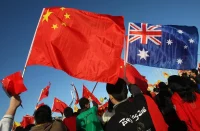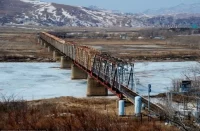On September 2, 1945, Japan, Nazi Germany’s last remaining ally, signed the act of unconditional surrender, putting the last dot in the history of the Second World War. The bloodiest war ever fought, it lasted 6 years, affected 40 countries and claimed 55 million lives.
The historic signing ceremony was held aboard the U.S. Missouri battleship in Tokyo Bay. When the ink on the Act of Surrender dried, Supreme Commander of the Allied Powers U.S. General Douglas MacArthur said: “And now let us pray that peace be now restored to the world and that God will preserve it always”.
Here is what Mikhail Myagkov, a Russian historian and a professor of the Moscow Institute of International Relations Mikhail, said on the issue:
“The war broke out on September 1, 1939. German troops occupied almost the whole of Europe. On June 22, 1941, they invaded the Soviet Union. The Read Army stood firmly against the invaders, and checked their advance first near Moscow, and then during the battle of Stalingrad. Finally, the remainder of the fascist army were crushed in Berlin itself.”
The Soviet Army precipitated Japan’s surrender by its blitz offensive against the one-million-strong Kwantung army in Manchuria. Dubbed “the August Storm”, that offensive went down in military textbooks in the United States and Europe as a brilliant example of military strategy. Even before the outcome of the Battle of Manchuria, Japan’s Emperor Hirohito said: “Now that the Soviet Union has entered the war, further resistance would endanger the very foundation of our empire’s existence”.
After Soviet troops seized control of Sakhalin and the Kuril Islands, Japan began fearing it might lose Hokkaido as well. The surrender was inevitable.
The significance of the victory of the anti-Hitler coalition is that countries with different regimes and ideologies were able to unite against a common threat, Mikhail Myagkov remarks:
“Where there is a common danger, there is a common goal. It’s an intransient and worthy lesson for future generations because similar threats may arise in the future. The victory of the anti-Hitler coalition in the Second World War turned a new page in history and ushered in a new era – the post-war era.”
The former WWII nations cannot but be aware that a new global war, particularly given the huge amounts of lethal weapons accumulated by countries and enough to turn Earth into a lifeless desert, may be the end of civilization, the end of the world.
Source: Voice of Russia















Comments